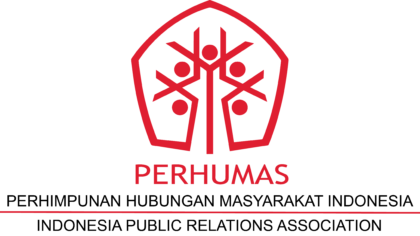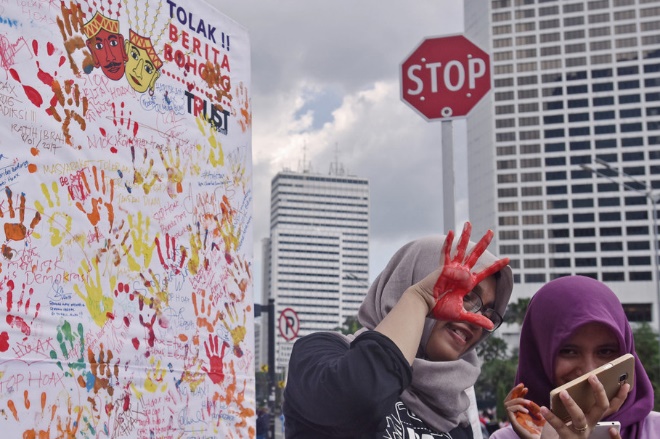Veles. You probably have never heard of this place, an obscure town somewhere in the middle of Macedonia with a population of only 45,000. But believe it or not, more than 140 so-called political websites originated from here during last year’s US presidential election.
It was in this town, where according to Buzzfeed.com, purported “news sites” such as WorldPoliticus.com, TrumpVision365.com, SConservativeToday.com, DonaldTrumpNews.co, and USADailyPolitics.com – all supporting Donald Trump’s camp – sprang up.
These were the “fake news” websites that generated massive hoaxes to benefit Trump and gave him an advantage over the heavily favored Hillary Clinton during the election.
The authors behind these hoax “news stories” were all young local people, even though most Macedonians know nothing about Donald Trump.
They simply work to generate fake news to attract attention, so they can secure revenue from clicks, or adverts. In fact, they earned thousands of dollars with these websites.
These fake news sites, which I will refer to as hoaxes, have become a global phenomenon. Even former President Barack Obama observed, after the 2016 election, that the new media has created a world where “everything is true and nothing is true.”
This phenomenon is frankly worrisome, because many of the world’s media outlets report on issues originating from social media. Journalists also often present honest reports on issues in the news without proof or any supporting evidence. Of course, if the news turns out to be false, a correction can be published quickly. But the damage is already done.
Although the term is currently trending, hoaxes are indeed centuries old. British psychologist Robert Nares (1753-1829) pointed out that the term “hoax” emerged in the late 18th century, as an alternative of the word “hocus,” which means “to cheat.” We know that hoaxes involve fraudulent practices.
Now how about Indonesia? As we know, both the 2014 presidential election and the 2017 local elections have something in common. Both attracted the interest of an unprecedented majority of Indonesian citizens – people who would normally have no interest in politics suddenly appeared eager to play a role in defending the candidate they championed and adored.
Another aspect of these two events that echoes the reports above – but is not inevitable – is the volume of fake news reports recklessly spread on social media, starting from slander to “knock out your opponent,” regardless of whether the news distributed is even half true or completely untrue.
So why can hoax news be spread so easily? The presence of the internet, “the most advanced discovery,” has altered the nature of human civilization. Not only has it facilitated the activities of our everyday lives, it has opened wide the floodgates for total information flow.
We are free to source information from credible news sites, news sites that have a specific agenda, blogs, social media, and more. Information can be absorbed by an internet viewer, online or distributed offline, and anything can eventually become viral, regardless whether or not it is really “news.”
In his book, “Trust Me, I’m Lying: Confessions of a Media Manipulator,” author Ryan Holiday details how the internet has become a very potent tool for public relations practitioners and marketers to deploy in political campaigns.
According to him, media organizations today are no longer really concerned with “quality journalism.” Sources are rarely checked, facts can be made up from nothing, and lies and errors are rarely corrected or retracted. In fact, the media is more pleased with gossip that can play with its readers emotionally, influencing them to share it with others. This makes fake news a very effective tool.
So, what if something goes wrong? As we have learned, hoax news in Indonesia can spread quickly through blogs or impromptu news sites as owners of social media accounts – we ourselves – are responsible for making it go viral.
With just one click, a false report spreads throughout our personal social networks, and unto our friends’ networks, and so on. Many of our own big media names have begun to fall victim to this by repeating fake news, even though they might try to confirm a rumor, or correct errors or lies.
This is particularly unfortunate if traditional mainstream media quotes from untrustworthy sources. Viewers begin to mistrust institutions, including the government, businesses, nongovernmental organizations and the media itself.
Clearly, as public relations professionals, we may not exploit fake news as a means for profit – although this could be an easy way for us to do business. The ugly fact is that eventually, fake news and its origins will be exposed.
If we rely on such fake reports to seek publicity, the image of our client companies can be severely damaged or destroyed. Fake news will come back to attack and undermine our own reputations, which we have so carefully built up over years.
The challenge is not easy for public relations practitioners, whose duty it is to attract media attention. Google News data mentioned that more than 72 million content articles were released in 2016 alone, or the equivalent of up to 300,000 articles per day.
It is a challenge for public relations practitioners to present interesting content amid torrents of new information and tight competition for attention.
So, what if your institution is attacked by fake news, or we ourselves are under fire? That is when the importance of maturity and wise thinking comes into play. To not fall prey to such hoaxes, public relations practitioners must also educate its audience.
Over the past few months, the government has been vigorously leading the way to educate Indonesians; an effort that certainly deserves approval. Society is becoming much more discerning, selective and mature in dealing with it.
Surely the education of the public should not be impeded, as Indonesia’s reputation will definitely be damaged if our audiences begin to accept fake news disseminated as fact.
Thus, it is a serious challenge for the media in Indonesia – including public relations practitioners – to be able to present content that is not only the first to break, but also accurate and true.
This is what is needed in Indonesia today. We have been able to get through the 2014 presidential election well, and hopefully the 2017 Jakarta gubernatorial election will also be smooth. And as public relations practitioners, above all, we should always be able to speak well of our nation. #Indonesiabicarabaik!
Agung Laksamana is chairman of the Public Relations Association of Indonesia (Perhumas)









